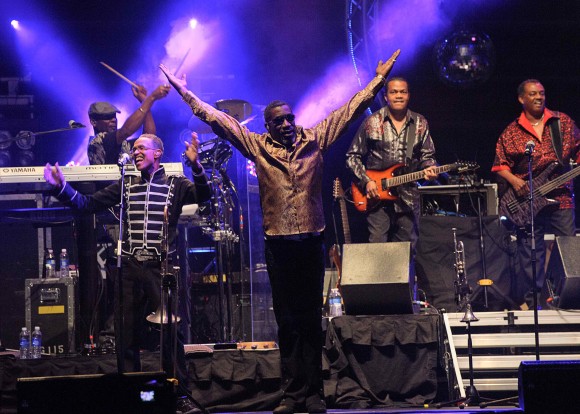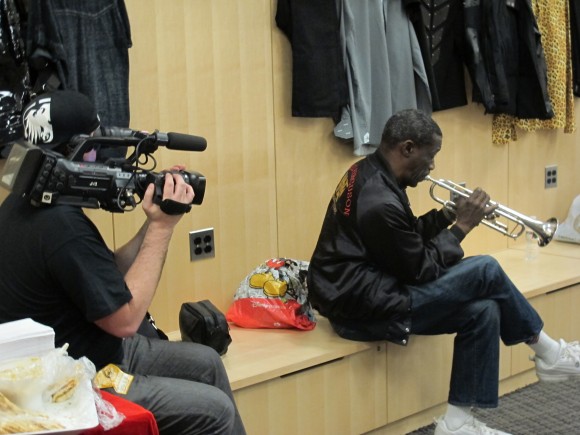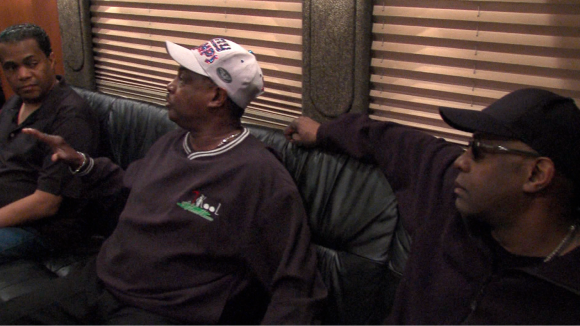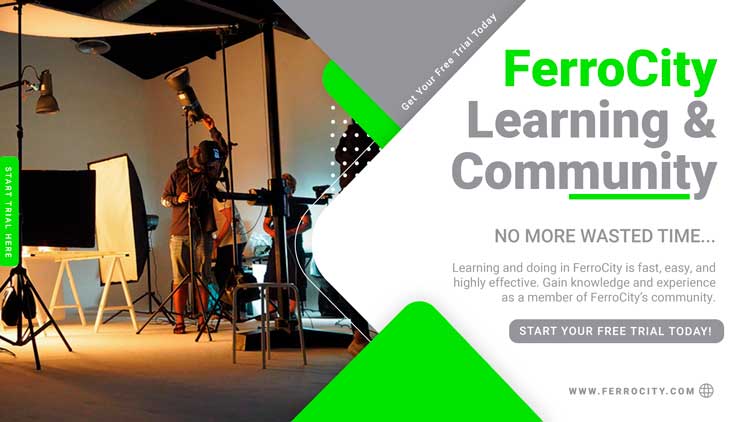Kool and the Gang’s Rise to Success
Have you ever pictured yourself entertaining bystanders in the subway to earn some cash? How about not only picturing that, what about DOING just that as a young teenager? Well what better a band, than one called Kool and the Gang to handle such a daunting task? The crew’s open-arms approach to unconventionality was an integral step in their concrete “jungle boogie.”
“We started playing for sandwiches at the Café Wa, and later on put the pan out there in front of the 9th street path and collected maybe ten to 15 dollars to get back home,” said Ronald Bell, the tenor saxophone player and co-founder of the band.
Kool and the Gang, the legendary jazz, R&B, soul and funk band, was formed in 1964 in Jersey City, New Jersey. Their hits include “Jungle Boogie” (featured in Quentin Tarantino’s Pulp Fiction), “Get Down On It”, and “Celebration.” They still widely perform today, but only four of the eight original band members remain together: Ronald Bell, his brother Robert Bell (bass), George Brown (drums) and Dennis Thomas (alto saxophone). Unfortunately the other four original members have passed away over the years, but their legacies remain intact.
 It all began for Kool and the Gang in New York City when they were just youthful teenagers. Thanks to its close proximity to their hometown, New York helped kickstart the band’s growth. As it turned out, their first shows in the Big Apple were also their first pivotal experiences as a young group. Their unwavering dedication to music has lifted the band from performing in subways and cafés to venues such as the Apollo Theater, Madison Square Garden, and other places across the world.
It all began for Kool and the Gang in New York City when they were just youthful teenagers. Thanks to its close proximity to their hometown, New York helped kickstart the band’s growth. As it turned out, their first shows in the Big Apple were also their first pivotal experiences as a young group. Their unwavering dedication to music has lifted the band from performing in subways and cafés to venues such as the Apollo Theater, Madison Square Garden, and other places across the world.
“We’re here in Dubai, we’re here in Australia, we’re here cause of song. From traveling so much I kind of got the connection that music is a universal language,” said Amir Bayyan, the band’s guitarist and the younger brother of Ronald and Robert.
Despite being on the road and having demanding lives at such a young age, Kool and the Gang have nothing bad to say about their extensive background of learning and performing–except for their views on Philadelphia.
“You can give those people free tickets, free food, free parking, and they’ll still have something to talk about. ‘Well I didn’t like the way his socks looked,’ mimicked Robert Bell. “It’s a tough crowd in Philly.”
Such exposure at an early age gave them the proper introduction to new learning experiences, good times, and most importantly, camaraderie: all of which would be renewed throughout the years as well.
Early on, after moving on to perform at weddings while still playing throughout New York City and New Jersey, the crew was invited to play at the Apollo Theater when they were only 16 and 17 years old. At first it seemed like an honor to play at such a venue, but Kool and the Gang was quickly roused by the other talent amongst them.
“We thought we had it all together … then this group called Willie Feaster and the Mighty Magnificents got up there … Oh man! They hit you with the vocals, the bass solos … they ran us back to Jersey City!” recalled Ronald Bell.
The young and talented are sometimes blinded by their surroundings, which seemingly was the case for the gang when they first hit the big stage at the Apollo.

Ferro Camera-Op, Jamie Kiley, captures some Kool footage backstage at the Garden.
“We had to regroup. We thought, ‘Man, this is what we’re up against?’ But you know what, it helped us get our act together.”
A realization of that sort is a strong sign of maturity and growth, which can surely explain the illustrious history that the band has had (they have sold over 70 million albums worldwide). The pragmatic nature of Kool and the Gang has helped them bring their talent down to earth as well as maintain such great composure under various circumstances; even when an instrument caught on fire during a show in California.
“We’re playin’ and we get to [the song] ‘Too Hot’ … and I start to smell somethin’ … then I see people in the audience looking, pointing … and then keyboard caught on fire!” said Amir Bayyan.
However, maturity and growth did not always resonate behind closed doors.
When Kool and the Gang began to travel more and had to be on time for recordings and gigs, the boneheaded qualities of the boys began to surface more frequently, especially those of lead guitarist Charles Smith. However, these qualities were more of an amusement rather than a burden. Smith passed away in 2006, but his silly antics are still remembered by the remaining band members today.
“In my history of hangin’ with Charles Smith, a lot of people have called him eccentric. That’s the only man I know that made a limo back out the Lincoln Tunnel because he forgot something,” Robert Bell said while holding back laughter.
The band members recall waiting in front of Charles’ house for two hours as he dilly-dallied before coming out. Many times when they scheduled a recording session at the House of Music in West Orange New Jersey, the guys would all carpool there and they would typically find themselves sitting outside of Charles’ house for unreasonable amounts of time. On many occasions they would have to rush when Charles was finally ready, including one instance when they had to drive “90 miles per hour” straight down I-95 to make it on time for a gig in Atlanta.
One day Robert Bell was curious and decided to ask Charles’ son, “What does your father do in there?” Charles’ son replied, “Well, he puts his socks on then he plays his guitar. Then he gets dressed and plays his guitar. Then he starts making a phone call and he’s playing his guitar.”
Despite watching time wither away, the guys think that sitting there and waiting hours for Charles represents what being part of Kool and the Gang really is. Since day one, they have been able to stick together over decades and adapt to one another’s imperfections because of their lightheartedness and spirited dedication and loyalty. While they know how to joke around, they clearly are masters of their craft and take pride in their work and performances.
“You’ve got people that come out to see you. It’s not supposed to be their concern about whatever you’re dealing with in your life,” said Shawn McQuiller, the band’s lead singer since the ‘90s. “They paid their ticket and they came out to see a great show. So when we hit that stage, we got to give them what they paid for.”
Even if it means remaining “kool” when your keyboard catches fire.
Check out EXCLUSIVE VIDEO from the Kool Bus Tour by clicking here!




